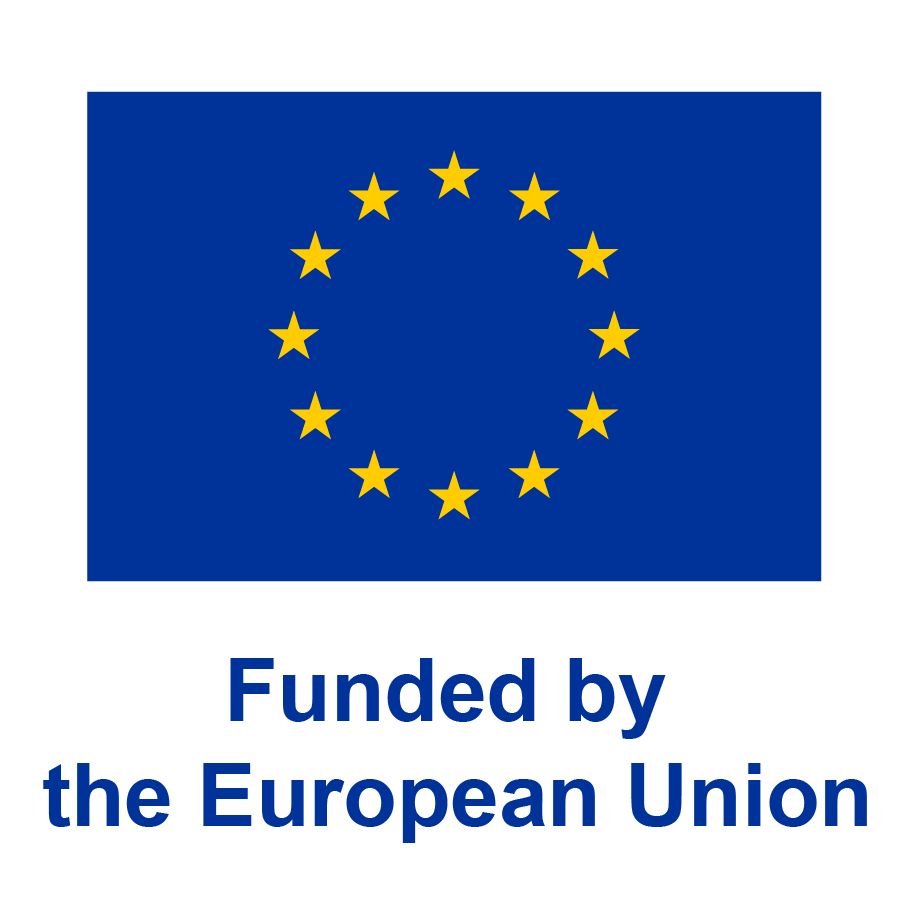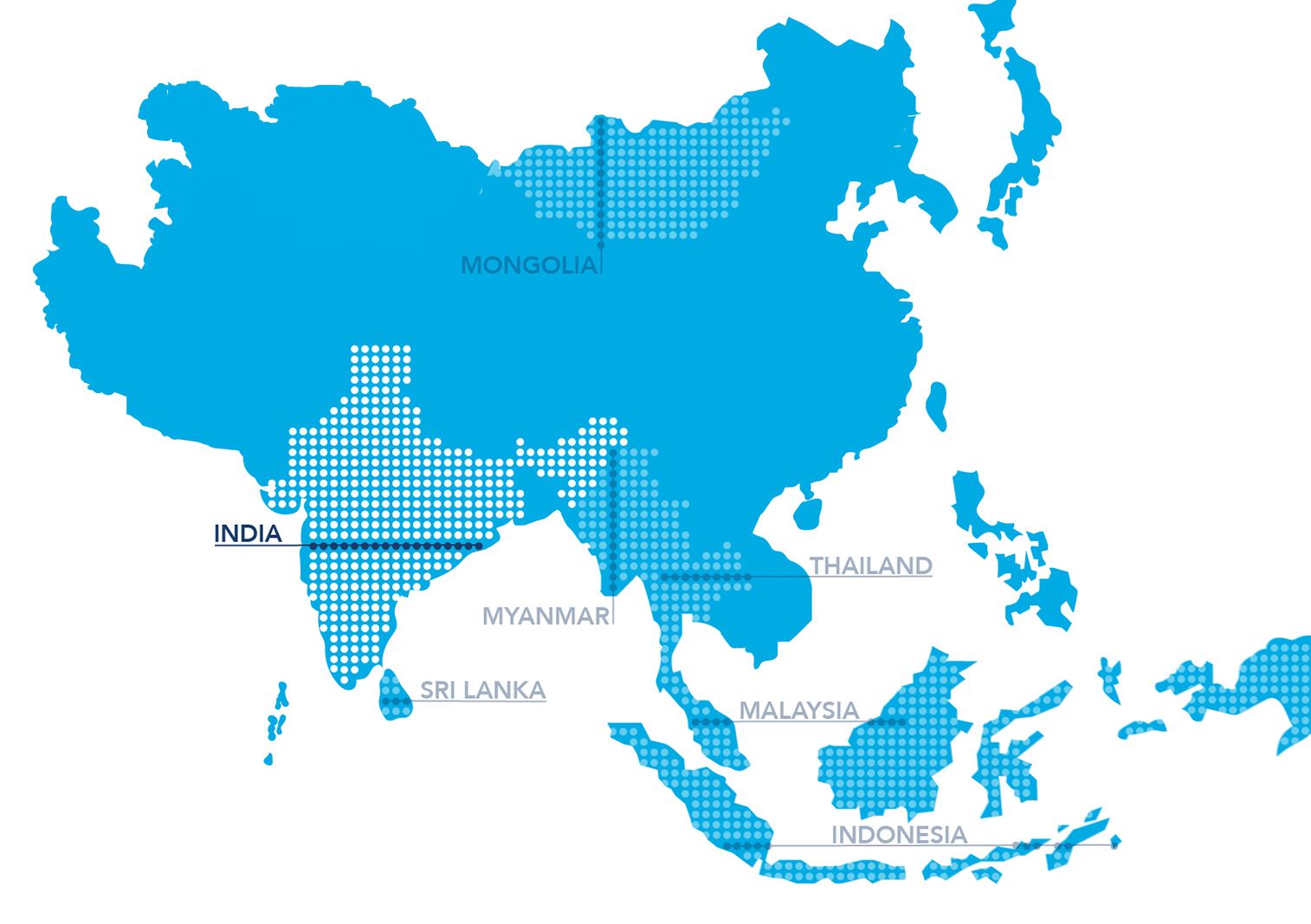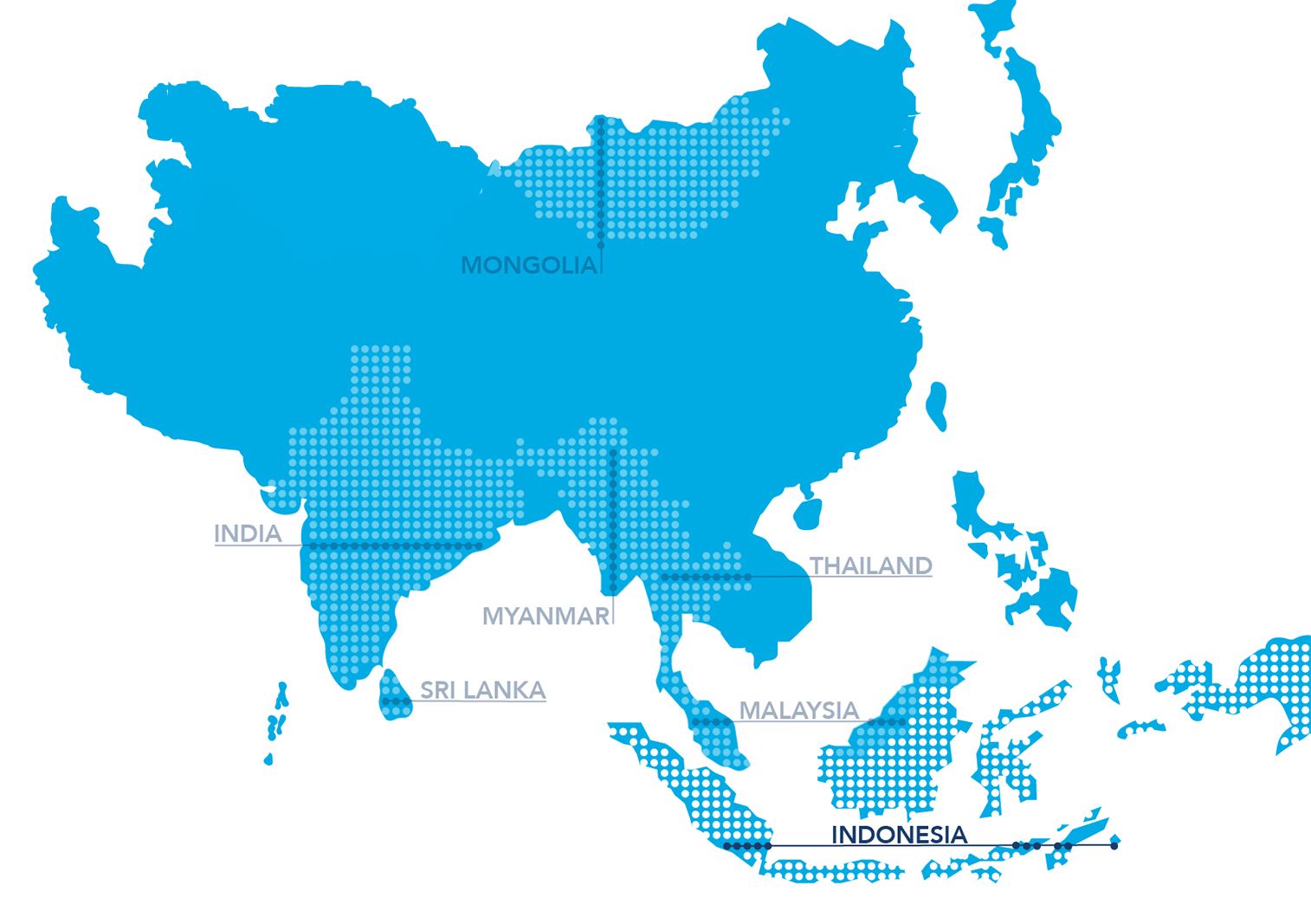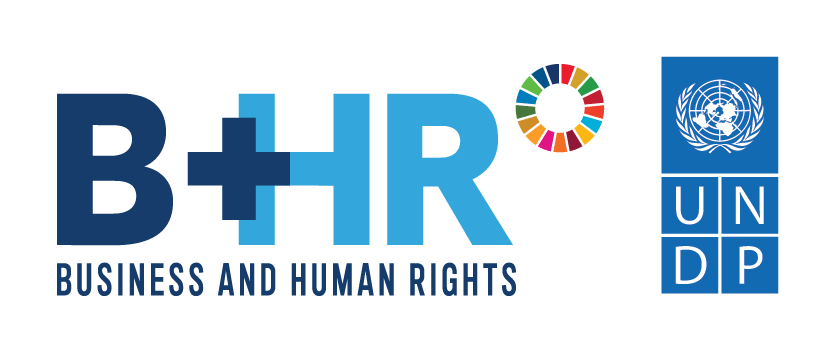Business and Human Rights in Asia
Enabling Sustainable Economic Growth through the Protect, Respect and Remedy Framework


Since 2016, UNDP has been working in close collaboration with other UN entities to promote the implementation in Asia of the UN Guiding Principles on Business and Human Rights in Asia, with support from the Government of Sweden, Japan and the European Union. This platform provides an overview of the EU-supported project, B+HR Asia: Enabling Sustainable Economic Development through the Protect, Respect and Remedy Framework.
Asia is emerging from the COVID-19 pandemic to a fragmented global economy, stricken by supply chain bottlenecks, shortages in key commodities and steep inflationary pressures. In this context, the consensus on the benefits and tradeoffs of global economic integration is being reconsidered in earnest.
Today, policy makers and business leaders speak more frequently of economic resiliency and self-reliance. Complex value chains and just-in-time production seem increasingly risky, whereas just-in-case re-shoring seems prudent and far-sighted.

A rethink of economic relationships and production methods is being embraced too by consumer protection advocates, environmental activists and human rights champions, especially as severe weather events take hold as a consequence of climate change.
Current levels of environmental degradation, especially deforestation, coupled with high rates of forced labor, child labor, land grabbing, and gender discrimination in the workplace, are no longer being justified as temporary or necessary features of rapid economic development.

Instead, a redesign of globalization is on offer, one that is more firmly rooted in international norms, defined by greater levels of transparency, and guided by commonplace notions of decency, good-will and respect towards each other and the natural world.
Expectations are rising quickly for governments and enterprises to demonstrate stronger commitments to human rights in business operations and supply chains to ensure sustainable economic development for all.
At this moment, attention has turned to the UN Guiding Principles on Business and Human Rights (UNGPs), the world’s most authoritative, normative framework for promoting responsible business practices, to provide a way forward.

The Project

B+HR Asia: Enabling Sustainable Economic Development through the Protect, Respect and Remedy Framework supports the implementation of the UNGPs in close partnership with Asian governments, business, and civil society, through dialogue, training, research, small grant provision and awareness raising activities.
In so doing, the joint EU-UNDP action aims to strengthen human rights conditions in business operations and supply chains, facilitating sustainable economic growth while promoting multilateralism.
The action is complemented by the Promoting Responsible Business Practices through Regional Partnerships project funded by the Government of Sweden and the B+HR Global project funded by the Government of Japan.
EU-UNDP Partnership

The European Union finances the action under the Partnership Instrument with €6.5 million to promote values shared by both the EU and UNDP. These values include greater levels of equality, respect for human rights, democracy and the rule of law.
The European Union is committed to the business and human rights agenda to support responsible trade, investment and business practices in Europe and around the world.
UNDP is implementing the action through a project team of eleven full-time staff and with the support of a word-wide network of experts in the area of business and human rights.
We are making a tangible impact in the region by enhancing human rights conditions and creating a more level playing field for business operating responsibly.

The European Union finances the action with €6.5 million to promote values shared by both the EU and UNDP. These values include greater levels of equality, respect for human rights, democracy and the rule of law.
The European Union is committed to the business and human rights agenda to support responsible trade, investment and business practices in Europe and around the world.
UNDP is implementing the action through a project team of eleven full-time staff and with the support of a word-wide network of experts in the area of business and human rights.
We are making a tangible impact in the region by enhancing human rights conditions and creating a more level playing field for business operating responsibly.
Our Goals

B+HR Asia will reach its objectives through four component workstreams:
1 Awareness raising of the UNGPs and peer-to-peer exchange on lessons learned among key stakeholders to build knowledge and political will in furtherance of policy convergence.
2 Communication and public diplomacy efforts to build public support of the business and human rights agenda.
3 Promotion of access to remedy to ensure rights-based solutions and to prevent future human rights abuses.
4 Knowledge sharing at the regional level to foster action on responsible business practices towards the environment, climate, and human rights.





B+HR Asia will reach its objectives through four component workstreams:
1 Awareness raising of the UNGPs and peer-to-peer exchange on lessons learned among key stakeholders to build knowledge and political will in furtherance of policy convergence.
2 Communication and public diplomacy efforts to build public support of the business and human rights agenda.
3 Promotion of access to remedy to ensure rights-based solutions and to prevent future human rights abuses.
4 Knowledge sharing to foster action addressing the adverse role of business operations on the environment, climate and human rights.





Our Impact

The project is being implemented over a period of 48 months, from January 2020 to December 2023, with programming focused in India, Indonesia, Malaysia, Mongolia, Myanmar, Sri Lanka, and Thailand.
Full time specialists located in UNDP country offices work in partnership with local stakeholders to drive impactful programming.
UNDP country offices implement activities based on annual workplans specific to each country, prioritizing the most pressing concerns and responding in a balanced way to the needs of all stakeholders.
Programming highlights
In Mongolia, B+HR Asia provides technical support to the government in developing a National Action Plan (NAP) on Business and Human Rights, supports civil society actors working with human rights defenders, and promotes women's equal participation and leadership in business. The country's NAP will be published in 2023.
In India, the project team is engaging the business sector on awareness raising and human rights due diligence practice as well as collaborating with civil society through small grants. The team is also supporting the Ministry of Corporate Affairs in the development of the country’s NAP.
In Sri Lanka, the team is raising awareness of the adverse impacts business operations are having on women, girls and the environment. The team is also featuring companies that have embraced business solutions with a human rights focus.
In Myanmar, the team is producing a series of videos, radio spots, podcasts, and other materials to raise community awareness of the relationship between business activity and land acquisition. Programming is on hold given current political circumstances in the country.
In Thailand, the team is promoting business and human rights through a series of consultations and awareness raising activities. B+HR Asia is exploring approaches to limiting the use of Strategic Lawsuits Against Public Participation (SLAPP) against human rights defenders.
In Malaysia, the team is supporting the government in developing a NAP on Business and Human Rights through training, and stakeholder consultations. Support to a National Baseline Assessment and research on a variety of BHR topics in Malaysia is ongoing.
In Indonesia, the team promotes human rights due diligence in business operations and access to remedy with a focus on vulnerable groups like women, children, people with disabilities and indigenous people. The country office is also supporting the development of the government’s National Strategy on Business and Human Rights, and producing research on infrastructure and other industries.
Case in Point – Thailand








The project is being implemented over a period of 48 months, from January 2020 to December 2023, with programming focused in India, Indonesia, Malaysia, Mongolia, Myanmar, Sri Lanka, and Thailand.
Full time specialists located in UNDP country offices work in partnership with local stakeholders to drive impactful programming.
UNDP country offices implement activities based on annual workplans specific to each country, prioritizing the most pressing concerns and responding in a balanced way to the needs of all stakeholders.
Programming highlights
In Mongolia, B+HR Asia provides technical support to the government in developing a National Action Plan (NAP) on Business and Human Rights, supports civil society actors working with human rights defenders, and promotes women's equal participation and leadership in business. The country's NAP will be published in 2023.

In India, the project team is engaging the business sector on awareness raising and human rights due diligence practice as well as collaborating with civil society through small grants. The team is also supporting the Ministry of Corporate Affairs in the development of the country’s NAP.

In Sri Lanka, the team is raising awareness of the adverse impacts business operations are having on women, girls and the environment. The team is also featuring companies that have embraced business solutions with a human rights focus.

In Myanmar, the team is producing a series of videos, radio spots, podcasts, and other materials to raise community awareness of the relationship between business activity and land acquisition. Programming is on hold given current political circumstances in the country.

In Thailand, the team is promoting business and human rights through a series of consultations and awareness raising activities. B+HR Asia is exploring approaches to limiting the use of Strategic Lawsuits Against Public Participation (SLAPP) against human rights defenders.

In Malaysia, the team is supporting the government in developing a NAP on Business and Human Rights through training, and stakeholder consultations. Support to a National Baseline Assessment and research on a variety of BHR topics in Malaysia is ongoing.

In Indonesia, the team promotes human rights due diligence in business operations and access to remedy with a focus on vulnerable groups like women, children, people with disabilities and indigenous people. The country office is also supporting the development of the government’s National Strategy on Business and Human Rights, and producing research on infrastructure and other industries

BHR+Environment

Asia in Focus
Today, there is growing concern that key industries in Asia are having an unsustainable impact on the environment, with irreversible consequences for individuals, families, and societies.
There is an urgent need or a stronger understanding of the interconnections between human rights, business, and the environment.
In 2022, B+HR Asia launched a series of talk shows 'Asia in Focus' to drive people’s attention to the interconnections between business, human rights and the environment in Asia, and to introduce possible solutions as seen through the lens of the UN Guiding Principles on Business and Human Rights.
Discover and explore work on Business and Human Rights and Environment done to date here.

EP1: Clean Air and the Business and Human Rights Agenda
Air pollution is considered among the most pressing environmental and public health challenge in Asia. Forty-nine of the top 50 cities most affected by air pollution are found in the region. How do we address air pollution in Asia? Who, if anyone, should be held responsible? And what role do human rights protections play in delivering results? In this episode, UNDP Business and Human Rights Specialist Sean Lees explores these questions and more with experts on environment and human rights:
- Diane Archer, Stockholm Environment Institute
- Weenarin Lulitanonda, Thailand Clean Air Network
- Grita Anindarini, Indonesian Center for Environmental Law
- William ‘BJ’ Schulte, EarthRights International
EP2: Clean Water and the Business and Human Rights Agenda
Why is water pollution at crisis levels in Asia and what must government and business do to mitigate its harmful impacts on public health, the environment and regional economies? In this episode of Asia in Focus, we discuss the causes, impacts, tradeoffs, and solutions involved in achieving clean water in the region. This episode features conversation with:
- Jyotiraj Patra, Oxfam in Cambodia
- Mohamad Mova Al'Afghani, Universitas Ibn Khaldun Bogor
- Sushimita Mandal, Stockholm Environment Institute
EP3: Climate Change and the Business and Human Rights Agenda
The impact of climate change on people and planet is leading to increased demands for governments and business to take action. At play are difficult policy choices that may involve painful trade-offs between short term and long term growth, sustainability and recovery. Are current approaches up to the task? Do we even have the right language to articulate the challenges? What role can the UN Guiding Principles on Business and Human Rights play in framing solutions?
- Joseph (JD) D'Cruz, Roundtable on Sustainable Palm Oil
- Sara K. Phillips, Chulalongkorn University
- Prof. Surya Deva, Macquarie University
EP4: Biodiversity and the Business and Human Rights Agenda
Ahead of COP15, businesses and financial institutions from over 50 countries have asked to make nature assessment and disclosure mandatory. The recognition of the role they must play in addressing their impacts is essential to the delivery of global biodiversity framework. In this episode, we discuss about the impact of the upcoming EU deforestation regulation on Asian business and the role of environmental justice to combat biodiversity loss in Asia.
- Henriette Færgemann, Delegation of the EU to Indonesia
- Beria Leimona, World Agroforestry Centre
- Rizwana Hasan, Bangladesh Environmental Lawyers Association (BELA)
- Nicole Torres, Parabukas Pte. Ltd.
- Mohammad Golam Sarwar, University of Dhaka
- Doley Tshering, UNDP




Asia in Focus
Increasing numbers of human rights and environmental experts are abandoning their siloes, and elevating discussions on the right to a clean, healthy, and sustainable environment in Asia.
In this spirit, Business and Human Rights in Asia (B+HR Asia) is developing knowledge products and media campaigns to spotlight the intersection of human rights and the environment, tailored to an audience of a variety of stakeholders including policy makers, business leaders and civil society champions.
In 2022, B+HR Asia launched a series of talk shows to drive people’s attention to the interconnections between business, human rights and the environment in Asia, and to introduce possible solutions as seen through the lens of the UN Guiding Principles on Business and Human Rights.
The talk show is webcast and complemented by three research reports and digital platforms on Asia’s environmental priorities including:
Air Pollution Webcast | Report
Climate Change Webcast | Briefing Note
Discover how B+HR Asia assess these priorities, and explore work done to date here.



What we offer

To Governments
States have a duty to protect workers and communities from business-related human rights abuses by taking appropriate steps to prevent, investigate and redress human rights abuses through effective policies, legislation regulation and enforcement action.
B+HR Asia provides technical support to governments and convenes stakeholders to enhance the drafting and implementation of National Action Plans and other policy instruments.
How do we do this?
UNDP’s B+HR Asia: Promoting Responsible Business Practices through Regional Partnerships project—funded by the Government of Sweden—supported the development of Thailand's National Action Plan (NAP) on Business and Human Rights. EU-supported action is assisting the government with implementation and laying the groundwork for Thailand's second NAP.
To Business
Businesses demonstrate respect for human rights by understanding the human rights risks their operations and supply chain partners pose, and preventing, mitigating, and remedying any adverse impacts. Businesses can better address human rights risks and impacts by conducting human rights due diligence.
B+HR Asia provides guidance and training on human rights due diligence (HRDD) to encourage companies operating in Asia to conduct human rights impact assessments and apply responsible business practices. UNDP has developed practical guidance tools and trained thousands of business actors on HRDD in programming countries.
How do we do this?
The B+HR Asia has designed a Human Rights Due Diligence Training Facilitation Guide (translated to Japanese, Thai and Mongolian, and efforts are being made to translate it further to Spanish, Russian, Arabic and Vietnamese). In addition, the team has developed Human Rights Due Diligence Self-Assessment Tool and a Human Rights Due Diligence and COVID-19: Rapid Self-Assessment for Business—available in ten languages—to help businesses consider and manage the human rights impacts of their operations.
To Civil Society
Civil Society is central to bringing the UNGPs to life, facilitating consultations with affected communities and monitoring the implementation of strategic policy instruments on business and human rights.
For many years now, Civil Society Organizations in Asia have been drawing attention to business-related human rights abuses, while supporting communities and providing early warnings of emerging risks.
B+HR Asia provides convening platforms, partnership opportunities and grant support to amplify the voice of civil society and raise awareness of risks and adverse impacts of business operations on human rights.
How do we do this?
In 2020, B+HR Asia conducted a COVID-19 impact analysis among Civil Society Organizations (CSOs) to better understand the impact of government responses to the pandemic on these organizations. Since 2021, B+HR Asia has provided grants to CSOs working on access to remedy in all seven countries.
CSO GRANTS AWARDED






To Governments
States have a duty to protect workers and communities from business-related human rights abuses by taking appropriate steps to prevent, investigate and redress human rights abuses through effective policies, legislation regulation and enforcement action.
B+HR Asia provides technical support to governments and convenes stakeholders to enhance the drafting and implementation of National Action Plans and other policy instruments.
How do we do this?
UNDP’s B+HR Asia: Promoting Responsible Business Practices through Regional Partnerships project—funded by the Government of Sweden—supported the development of Thailand's National Action Plan on Business and Human Rights. EU-supported action is assisting the government with implementation and laying the groundwork for Thailand's second NAP.
To Business
Businesses demonstrate respect for human rights by understanding the human rights risks their operations and supply chain partners pose, and preventing, mitigating, and remedying any adverse impacts. Businesses can better address human rights risks and impacts by conducting human rights due diligence.
B+HR Asia provides guidance and training on human rights due diligence (HRDD) to encourage companies operating in Asia to conduct human rights impact assessments and apply responsible business practices. UNDP has developed practical guidance tools and trained thousands of business actors on HRDD in programming countries.
How do we do this?
The B+HR Asia has designed a Human Rights Due Diligence Training Facilitation Guide, (translated to Japanese, Thai and Mongolian, and efforts are being made to translate it further to Spanish, Russian, Arabic and Vietnamese). In addition, the team has developed Human Rights Due Diligence Self-Assessment Tool and a Human Rights Due Diligence and COVID-19: Rapid Self-Assessment for Business—available in ten languages—to help businesses consider and manage the human rights impacts of their operations.
To Civil Society
Civil Society is central to bringing the UNGPs to life, facilitating consultations with affected communities and monitoring the implementation of strategic policy instruments on business and human rights.
For many years now, Civil Society Organizations in Asia have been drawing attention to business-related human rights abuses, while supporting communities and providing early warnings of emerging risks.
B+HR Asia provides convening platforms, partnership opportunities and grant support to amplify the voice of civil society and raise awareness of risks and adverse impacts of business operations on human rights.
How do we do this?
In 2020, B+HR Asia conducted a COVID-19 impact analysis among Civil Society Organizations (CSOs) to better understand the impact of government responses to the pandemic on these organizations. Since 2021, B+HR Asia has provided grants to CSOs working on access to remedy in all seven countries.













